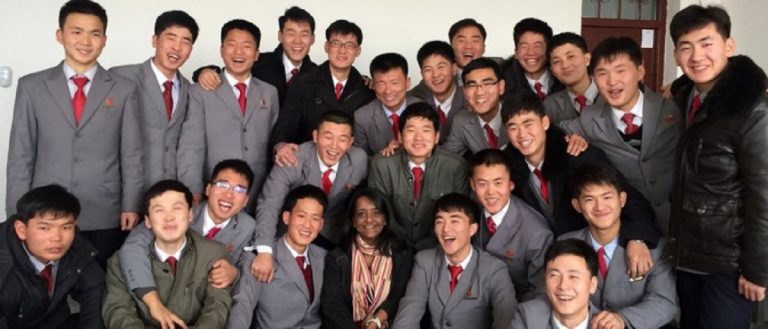
Pyongyang University of Science and Technology (PUST) reopened this Monday for the new semester without its usual tow of American professors, after Washington’s ban on its passport holders to travel to North Korea came into effect last Friday, according to university officials as reported by The New York Times.
The school, which is funded by Christian evangelicals abroad, is now seeking for non-American foreigners to teach in its campus after the ban affected about half of its faculty of volunteer professors, who failed to secure exemptions. Courses, teaching schedules and English-based curriculum are also heavily impacted.
“The teaching activities and the unique ‘international English-based’ character of the school are severely impacted by the US travel ban and the decision of some other personnel not to return,” a source told Reuters.
EXCLUSIVE: Pyongyang university to start fall classes without American staff after travel ban https://t.co/Yh5kM1Iqab pic.twitter.com/7kwd8lVZRs
— Reuters (@Reuters) September 1, 2017
The university is recruiting more non-American volunteers to teach there, the university said in a statement. According to Colin McCulloch, the university’s director of external relations (via New York Times), fall classes started on Monday with only 20 to 25 non-American foreign volunteers.
PUST was founded in 2001 by Korean-American Jason Kim and now runs on funds by evangelical Christians abroad, with the aim of teaching North Korea’s elite how to modernise the reclusive state and engage with the outside world. Subjects include computer science, agriculture, international finance and management, which are taught in English by an international faculty.
Earlier this year, PUST leaders sought help from 10 US universities, including Texas A&M University, to teach subjects such as how to grow food in a land of chronic shortage, Reuters reported.
Pyongyang's only private university reaches out to Texas A&M for crop lessons https://t.co/OCMHLJczvj pic.twitter.com/3ZXtg8EKnE
— The Japan Times (@japantimes) January 30, 2017
The travel ban was announced in July, citing risks of “long-term detention” there, after an American college student, Otto F. Warmbier died in June after the North released him. Warmbier was serving a 15-year sentence of hard labor in North Korea for attempting to steal a political poster and had been in a coma for more than a year before he was released.
Tensions between the North and the US remain on a high over North Korea’s latest nuclear test on Sunday. US envoy to the United Nations Nikki Haley claimed on Monday that North Korea’s leader Kim Jong Un was “begging for war” and called for the Security Council to put in place the “strongest possible” sanctions as deterrence to Kim and the country’s trading partners.
Liked this? Then you’ll love these…
Trump should go easy on North Korea over American student’s death
North Korean university draws US evangelicals despite risks







